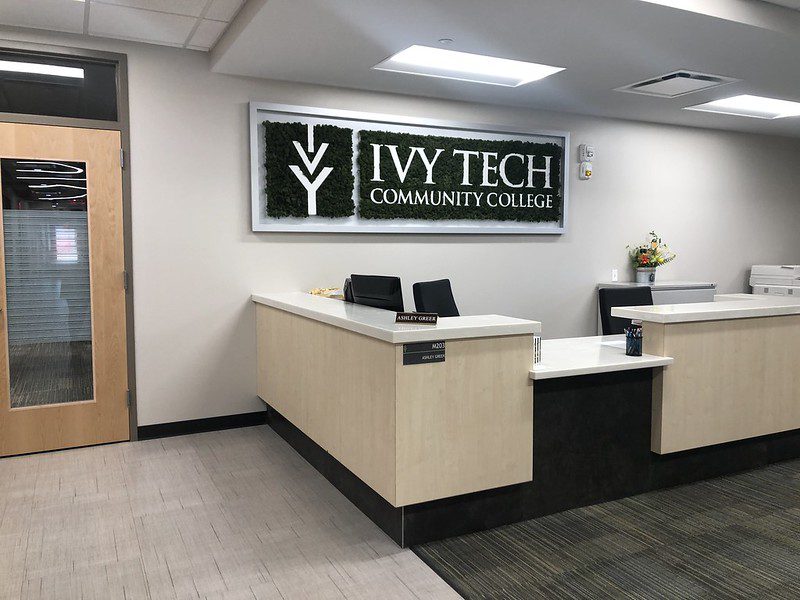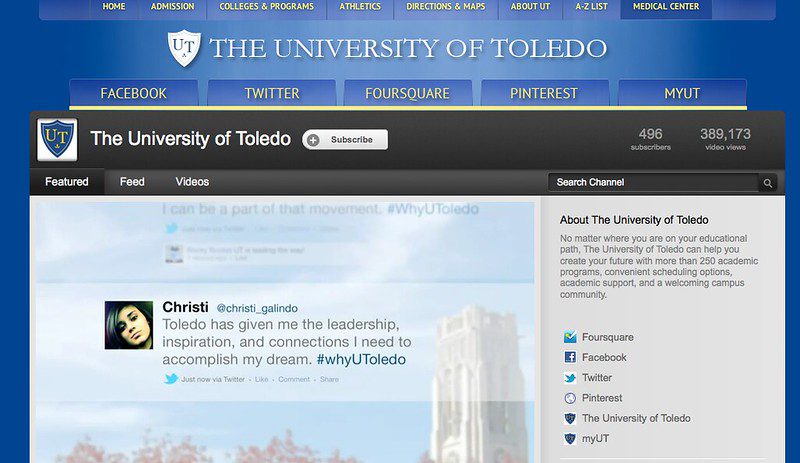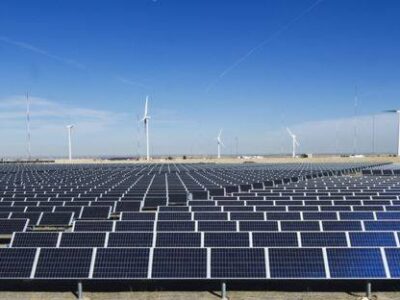The clean energy industry employs nearly 569,000 people in the Midwest. And a recent report from Environmental Entrepreneurs (E2) shows clean energy jobs are growing in every midwestern state from Ohio to Nebraska. With such high job potential, it’s not surprising America’s Heartland offers an array of energy education and training programs.
Indiana
Ivy Tech Community College – Energy Technology Certificate
The Energy Technology program at Ivy Tech prepares students for a variety of clean energy careers. Graduates work as grid operators, power lineman, power plant operators, electricians and more. Students seeking the certificate in Renewable Energy Technology take courses in smart grid home integration, wind power and solar energy. The program also partners with local businesses such as Siemens, General Electric and Caterpillar to give students access to cutting-edge training and is available on four campuses.

Ball State University – Interdisciplinary Minor in Energy
Ball State in Muncie, Indiana offers a unique cross-disciplinary minor in Energy. The program allows students to build in-demand technical skill sets as well as introduces them to the societal issues surrounding energy as a resource and the “increasingly close connections between energy and flourishing nations.” Students who want to focus on renewable energy can focus their coursework on solar energy and alternative energy systems. The minor in Energy pairs well with majors in Architecture, Geography, Geology, Technology, Sociology and Urban Planning.
Indiana University, Bloomington – MS in Environmental Science
At Indiana University’s Bloomington campus, you can earn a master’s degree in Environmental Science. According to their website, it’s one of the oldest and largest environmental science programs in the nation. Graduates will be well-equipped to solve complex environmental issues, including those surrounding renewable energy and its applications. Students have gone on to fulfilling careers as park rangers with the National Park Service, landscape conservationists, environmental protection specialists and wetlands project managers.
Purdue University Global
Purdue University Global is the online wing of Purdue University, allowing students to take classes on their own schedule. It’s a great option for those seeking additional training while balancing work and family responsibilities. The online Master of Science in Engineering Technology prepares students for careers in industrial disciplines such as facilities management, manufacturing, supply chain and quality control – all areas likely to overlap with the renewable energy sector.
Ohio
Marietta College – Degree in Land & Energy Management
Marietta College is a small liberal arts institution, making the Land and Energy Management program a unique but valuable addition to their educational offerings. The program is accredited by the American Association of Professional Landmen and allows graduates to earn three credit years towards the five years of work experience required to take the Registered Professional Landman exam. Interested students can combine their degree with a minor in Energy Systems Studies or Energy Systems Engineering. Graduates will be well-prepared for opportunities at solar energy purchase agreement enterprises, conservation programs and state agencies – plus the surrounding Ohio / Pennsylvania / West Virginia region is ideal for renewable energy jobs.
University of Toledo – Minor in Renewable Energy (MRE)
The University of Toledo’s interdisciplinary minor in Renewable Energy is tailored to STEM students majoring in physics, astronomy, chemistry, environmental sciences, biology, math or engineering. Students majoring in other disciplines can still enroll, but they may need to take prerequisite courses. According to the program’s website, a primary focus is teaching students about “the advantages and complexities of introducing renewable energy sources.” The minor also requires an internship to ensure graduates are equipped with practical, on-the-job training in addition to their coursework.

Stark State College – Sustainable/Alternative Energy Certificate
For those interested in alternative energy technology, the sustainable / alternative energy certificate allows students to study on a part-time or full-time basis. Coursework covers a variety of different alternative energy sources including solar, wind, biomass to energy, geothermal and hydroelectric. Students will design and build a sustainable energy system in partnership with a faculty advisor, giving them valuable hands-on experience that will be attractive to future employers. As a state supported school, Stark State has an open door policy allowing anyone interested in higher education to enroll as long as they’ve completed high school.
Sinclair Community College – Energy Management Technology
The Energy Management Technology program at Sinclair instructs students on how to identify energy efficiency measures on buildings and facilities as well as how to design and implement renewable energy systems. Students may choose to obtain an Associate of Technical Studies in Energy Management Technology or a one-year Technical Certificate in Energy Technology. Graduates of either program will be prepared for job opportunities at energy assessment companies in addition to professional roles as energy management technicians and environmental engineering technicians. Sinclair has also partnered with the University of Dayton on an internship program to teach students how to conduct commercial energy assessments.
University of Dayton – Master of Science in Renewable and Clean Energy
For those interested in masters level training, the Master of Science in Renewable and Clean Energy at University of Dayton is a popular choice. When the program began in 2009, it not only attracted Fulbright scholars but also saw enrollment climb three times higher than what was projected. Program director Dr. Kissock boasts some impressive accolades: in 2011, Kissock was dubbed a champion of energy efficiency by the American Council for an Energy-Efficient Economy and has also served on the Midwestern Governors Association Energy Efficiency Advisory Group. Students can choose to take courses on campus or online, making it easy for working professionals to further their education.
Wright State University – MS in Renewable and Clean Energy (MSRCE) and Renewable and Clean Energy Minor
Wright State University in Dayton offers both a minor in Renewable and Clean Energy for undergraduates as well as a Master of Science in Engineering, Major in Renewable and Clean Energy (MSRCE). The minor in Renewable and Clean Energy admits both engineering and non-engineering undergraduates. In the masters program, students study fundamental concepts and various forms of renewable energy including fuel cells, solar energy, wind power, hydrogen fuel, energy conversion, energy materials, energy efficiency and thermodynamics. The goal of the masters program is to train the next generation of clean energy engineers and contribute research to this critical field.
Iowa
University of Iowa – BS or MS in Environmental Engineering
According to the program website, studying environmental engineering can lead to careers “in any aspect of environmental protection, including air pollution control, industrial hygiene, radiation protection, hazardous waste management, toxic materials control, water supply…public health, and land management.” U.S. News and World Report ranks Iowa’s engineering program among the top 20% in the country. The school also offers a fast-track program so students can earn the BS and MS degree at the same time.





